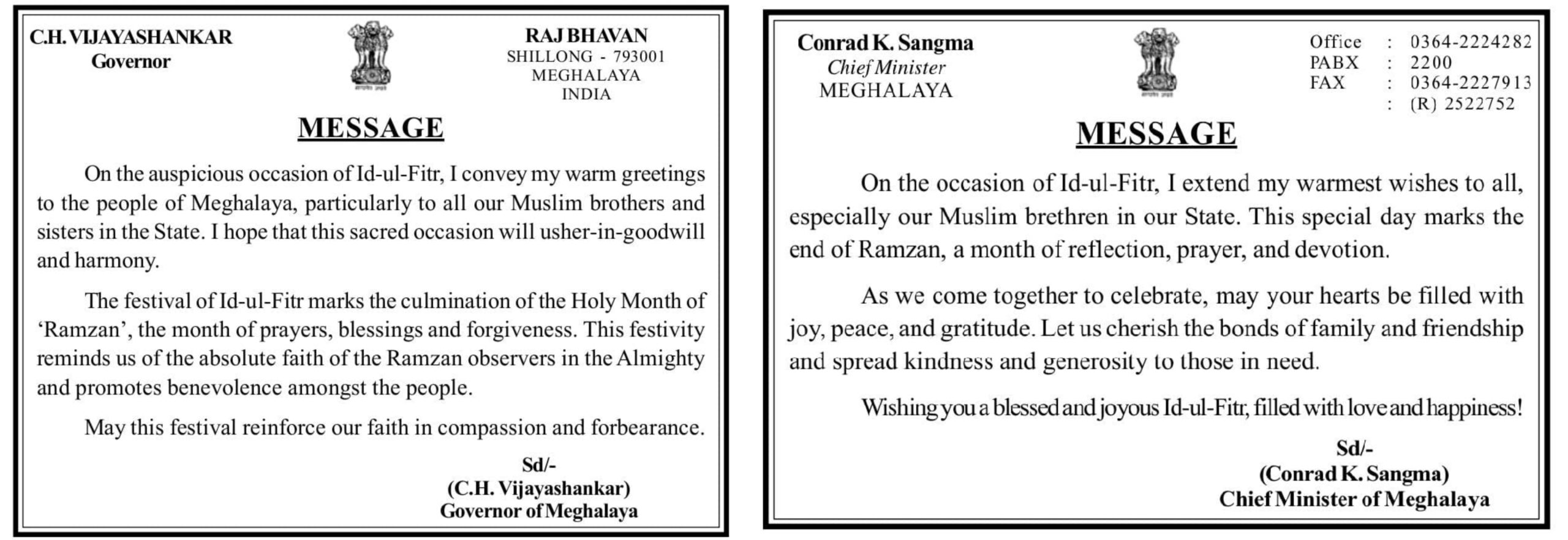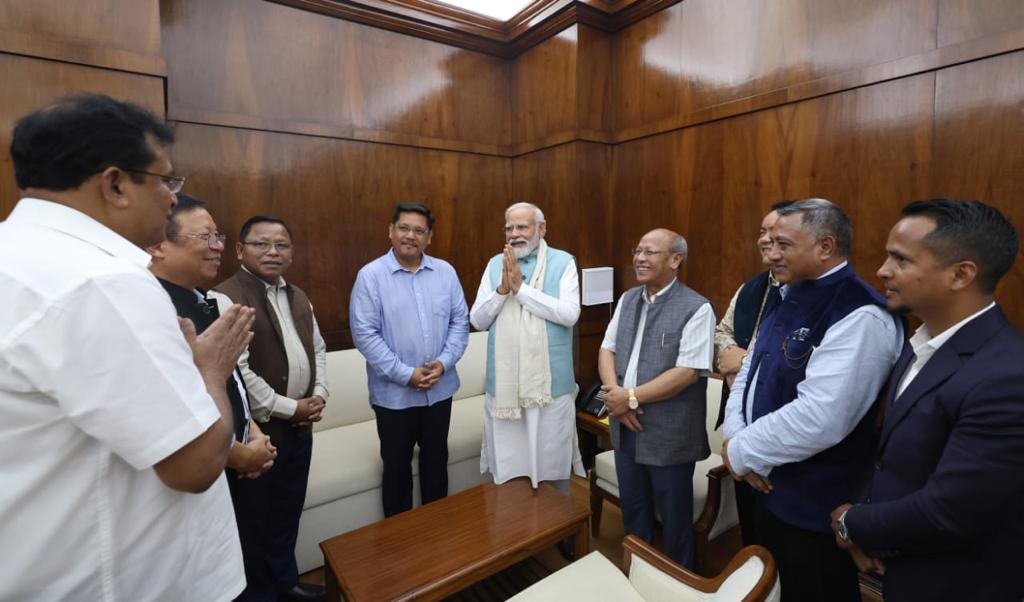A delegation led by Chief Minister Conrad K Sangma on Tuesday urge the intervention of the Prime Minister Narendra Modi for immediate implementation of the inner line permit (ILP), inclusion of Khasi and Garo languages in the 8th Schedule and resolving the boundary dispute with Assam.
The delegation highlighted the resolution passed by the State Assembly in December 2019, focusing on the need for ILP implementation in Meghalaya. The delegation sought Prime Minister’s intervention as the State Government awaits a response from the Ministry of Home Affairs regarding the consideration of ILP in Meghalaya.
Chief Minister Sangma apprised the Prime Minister of the inadequacy of the Citizenship (Amendment) Act, 2019, in safeguarding tribal interests despite its exclusion provision for tribal areas. The memorandum presented to the Ministry of Home Affairs in 2019 seeks the implementation of ILP in Meghalaya under the Bengal Eastern Frontier Regulation 1873.
The Chief Minister also emphasized the eligibility of Khasi and Garo languages for inclusion in the Eighth Schedule of the Constitution of India. A resolution to this effect was passed by the Meghalaya Legislative Assembly in November 2018, and the matter is currently pending with the Government of India.
He said that the Khasi and Garo languages meet the prerequisites for inclusion in the Eighth Schedule.
On the Assam-Meghalaya boundary resolution, the delegation sought Prime Minister’s support in resolving the remaining six disputed areas between Assam and Meghalaya. In 2022, an MoU was signed, leading to joint boundary surveys conducted by both states. Reconstituted regional committees are currently working on assessing the status of these areas.
Sangma reiterated the reconstitution of three Regional Committees to assess the current status of the remaining six disputed areas. The committees are tasked with verifying village claims, establishing geographical locations, and preparing asset registers in collaboration with both state governments.
The Chief Minister also conveyed the state’s views on Constitution (One Hundred and Twenty-Fifth Amendment) Bill, 2019 highlighting concerns related to the nomination of un-represented tribes to the Autonomous District Councils (ADCs) in Meghalaya.
The memorandum conveyed the Government of Meghalaya’s stance on the nomination of un-represented tribes to Autonomous District Councils.
The State government decided against this nomination after extensive consultations with various stakeholders, given concerns of unequal opportunity among tribes.
In the memorandum presented to the Prime Minister, the Chief Minister underlined the intricacies of the situation. He explained that Meghalaya consists of 17 major tribes, some of which have as many as 37 sub-tribes.
With the proposed expansion of seats in the Autonomous District Councils, the ratio of seats to the number of tribes/sub-tribes raised concerns about the equitable distribution of nominated seats.
The memorandum expressed apprehensions that this disproportionate allocation might lead to inequality of opportunity among different tribes, potentially endangering the unity and fraternity they share.
Additionally, Meghalaya emphasized that there is no reservation for seats filled by universal adult suffrage, and no ban on any tribe/sub-tribe participating in the election process—be it contesting or voting. Therefore, after extensive consultations with various stakeholders, the Government of Meghalaya has opted against the nomination of un-represented tribes to the ADCs.
The memorandum further delineated the revised categories for the nomination of members to the Khasi Hills Autonomous District Council (KHADC) and Garo Autonomous District Council (GHADC):
Reputed Academician or Eminent Person in Education: Recognized by Central and/or State Government in the field of education or academic pursuit. Reputed Sportsperson: Who has participated in, or represented the State at the national and international levels. Reputed Woman Representative: Who has served the State in an administrative or judicial capacity, or has been a member of State Commissions, Authorities, Boards, or other Bodies set up by the Government in public interest. Eminent Entrepreneur or Professional: Acknowledged for their achievements in the business or professional sectors.
For the Jaintia Hills Autonomous District Council (JHADC), the nomination categories are similar, with one member from the “reputed woman representative” category and the other from the remaining categories.
The Chief Minister also discussed the proposed increase in the number of seats in the Autonomous District Councils. He proposed that the seats for GHADC be increased from 30 to 42 members, with 36 elected and 6 nominated members, for KHADC from 30 to 40 members, with 36 elected and 4 nominated members and for JHADC from 30 to 34 members, with 30 elected and 4 nominated members.
Meghalaya’s view is that the number of seats for JHADC should be increased to 32, based on the relative population and size compared to KHADC and GHADC.


